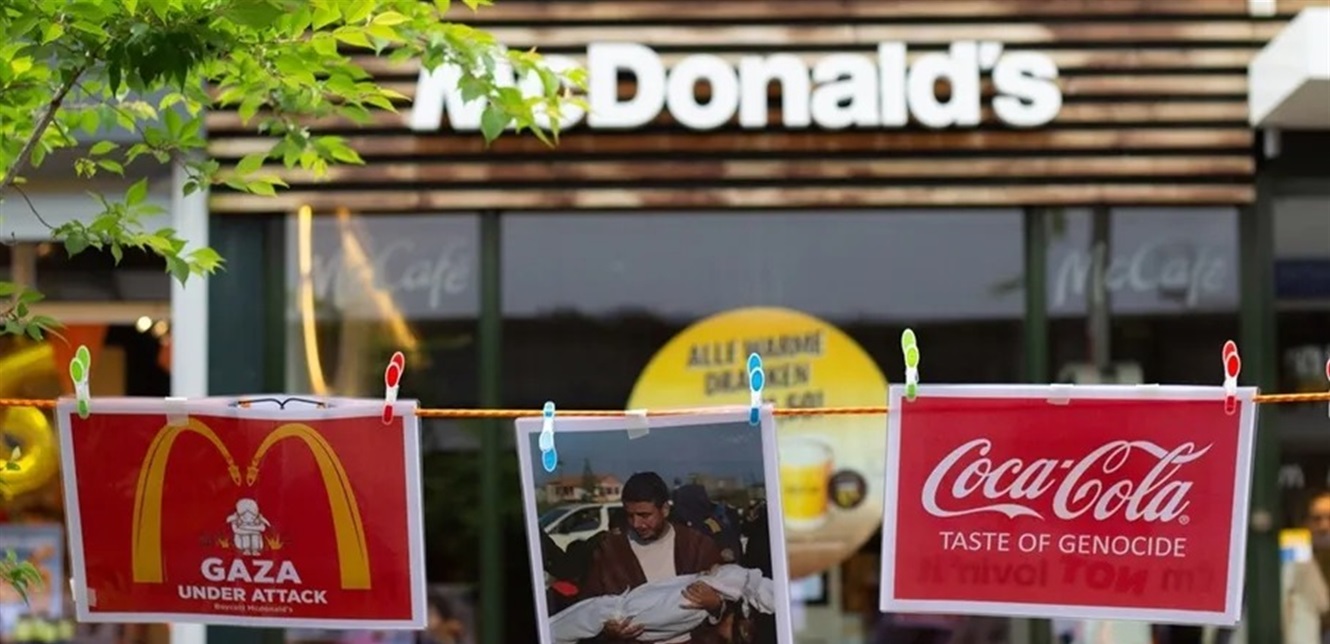Many companies supporting the usurping entity announced their increasing losses due to global boycott campaigns. This came in condemnation of the genocidal war committed by the usurping entity in the Gaza Strip.
This boycott had many affects, including the continued decline in the profits of international companies and brands that showed their support for the usurping entity, including: McDonald’s restaurants, Papa John’s and Burger King, the French grocery store company (Carrefour), Starbucks cafes, pharmaceutical and detergent companies, and soft drink companies, such as Pepsi and Coca-Cola, led to a significant decline in the sales of these companies in many countries around the world.
According to the official website of the Palestinian boycott movement, international investors, including but not limited to the Almashikia Church in the United States, the Almanhajia Church, the Dutch pension fund PGGM, the governments of Norway, Luxembourg, New Zealand, and the municipality of Copenhagen, have withdrawn their investments from companies involved in the usurping entity’s violations of international law.
Major European banks, including Noida Bank and Danske, have also withdrawn their investments from companies targeted by the boycott.
The American RAND Corporation predicted, in a report, that if the economic boycott against the usurping entity continues at its pace, in backdrop of its crimes in its war on Gaza in 2023, it will lead to will lead to a decline of 1 to 2% of the gross domestic product, amounting to 56 billion dollars.
With the continuation of the genocidal war on the Gaza Strip, today the boycott has become a cultural concept among millions of people. It is a way to resist the usurping entity in Arab, Islamic and global societies.





